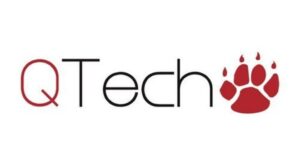Key Moments:
- The Curaçao Gaming Authority has launched Version 2.0 of its fee structure under the LOK framework for both B2C and B2B operators.
- Annual operational fees remain the same, but first-year payments are now split into two six-month billing periods, with strict payment deadlines.
- Sector oversight responsibilities will shift from the Ministry of Finance to the Ministry of Justice, effective 19 August 2025.
Revised Fee Processes Under LOK Regulation
The Curaçao Gaming Authority (CGA) has introduced Version 2.0 of its fee schedule in accordance with the National Ordinance on Games of Chance (LOK). This latest revision marks a continuation of Curaçao’s regulatory evolution and eliminates the previous transitional measures from the NOOGH system, cementing the island’s move to a stricter oversight framework. Both business-to-consumer operators and business-to-business suppliers fall under the scope of these regulations, which are designed to improve both financial control and efforts to fight illegal gambling.
Fee Details and Payment Structures
Key licensing costs have not been altered: the application fee remains at €4,592, while annual oversight charges are unchanged at €47,450 for B2C operators and €24,490 for suppliers. Charges related to domain modifications, certification, and ownership transitions have also been kept the same, indicating the regulator’s desire to minimize added financial burdens during this transition.
The main update concerns the payment calendar for first-year annual fees. Instead of a single upfront invoice, new licensees will receive two six-month bills. The first payment must be completed before the license activates. A second six-month invoice will be issued only if the operator continues to meet CGA requirements after the initial period. From the second year onwards, billing returns to the annual model. Operators are required to settle invoices within 14 days; a payment not made within 71 days will result in immediate license revocation and removal from the public register. The CGA has emphasized that written confirmation is needed after each review for continued operation, as invoices alone do not constitute automatic license renewal.
| Fee Category | Amount (€) | Billing Frequency |
|---|---|---|
| License Application | 4,592 | Once |
| B2C Annual Oversight | 47,450 | Split into two 6-month invoices in the first year; annually thereafter |
| B2B Annual Oversight | 24,490 | Split into two 6-month invoices in the first year; annually thereafter |
Governance Changes and Regulatory Focus
This rollout comes after an administrative realignment that moves regulatory responsibility for the gambling sector from the Ministry of Finance to the Ministry of Justice, effective 19 August 2025. The change is intended to deliver stronger enforcement against illegal betting activity, an area that has drawn increased worldwide attention.
“Since the introduction of the Landsverordening op de Kansspelen (LOK), the emphasis has shifted toward a solid legal basis for supervision and for tackling illegal operations,” officials said, adding that oversight must now reflect international standards.
Leadership Developments and Market Impact
The regulatory shift was accompanied by speculation following the resignations of Supervisory Board members Shelwyn Salesia, Robert Reijnaert, and Ildefons Simon, leaving the CGA without a board not long after the implementation of enhanced regulatory supervision. Media coverage noted that Prime Minister Gilmar Pisas engaged in discussions with the CGA soon after these developments.
However, the CGA rejected any suggestions of political interference, labeling such claims as inaccurate. The authority explained that board appointments undergo standard review whenever departmental mandates change, reflecting standard governance practices in public institutions.
Industry Outlook
Analysts caution that gaming companies may experience short-term financial planning challenges due to the compressed first-year invoicing cycle and strict deadlines. Nonetheless, a consensus is emerging that these reforms position Curaçao to reinforce its regulatory credibility and draw in more reputable operators.
- Author


